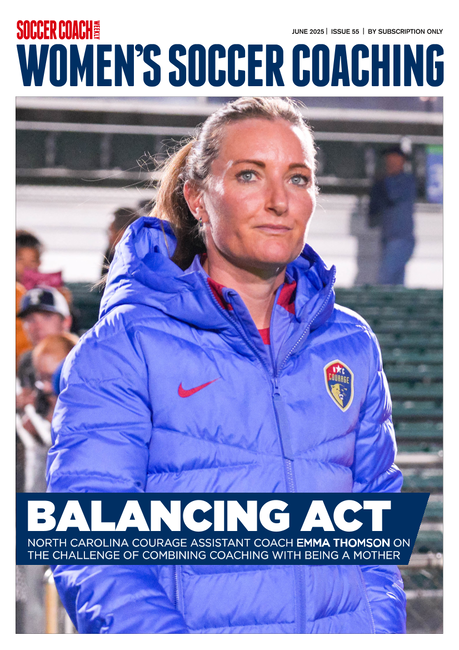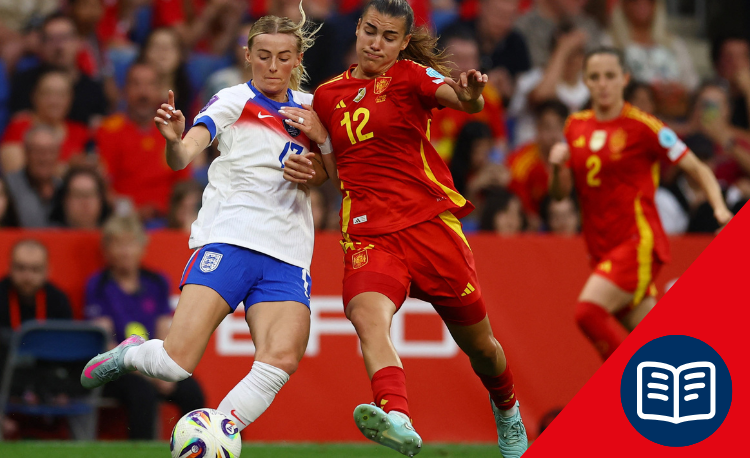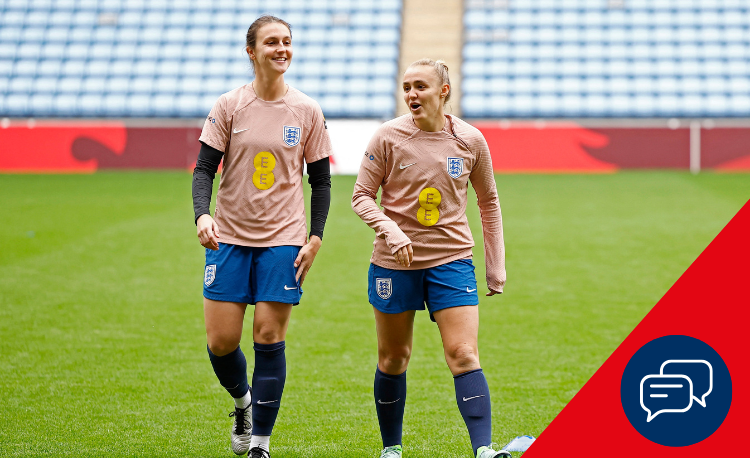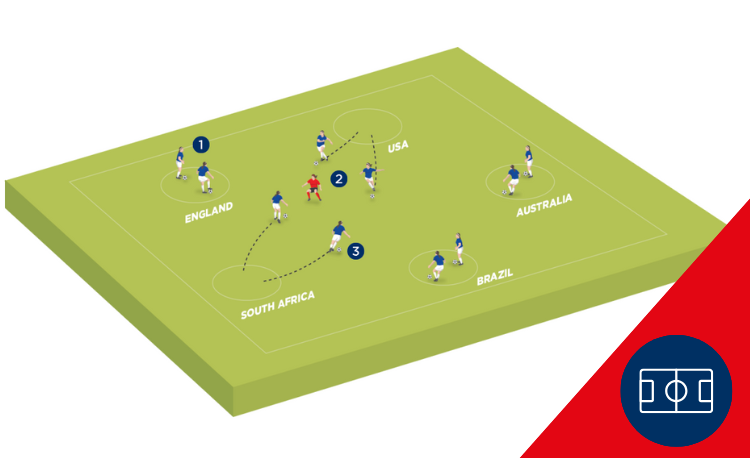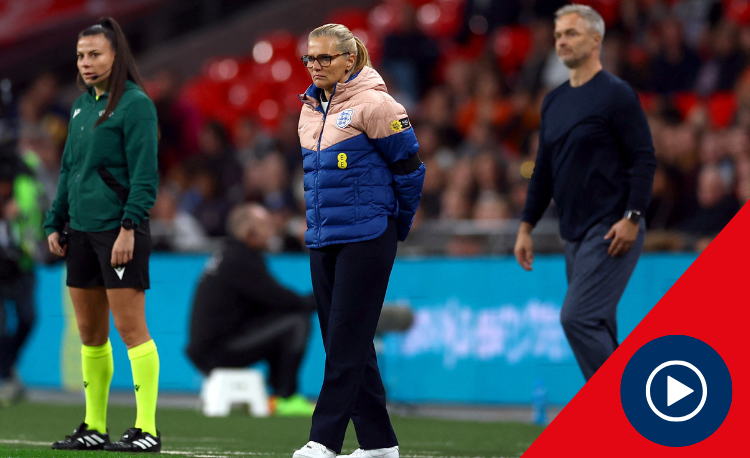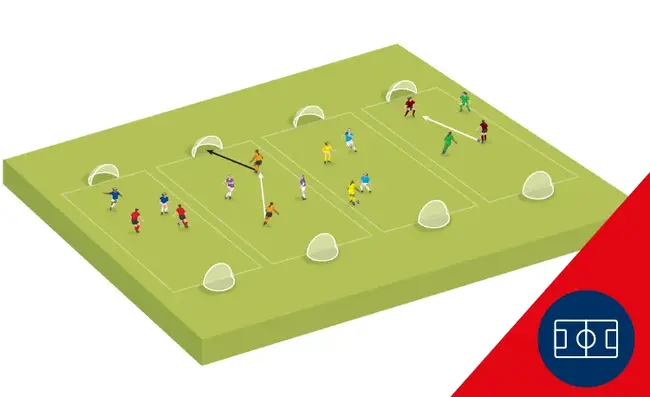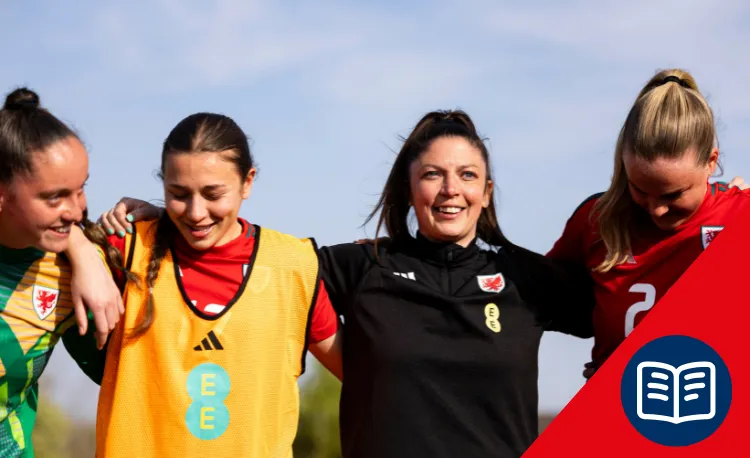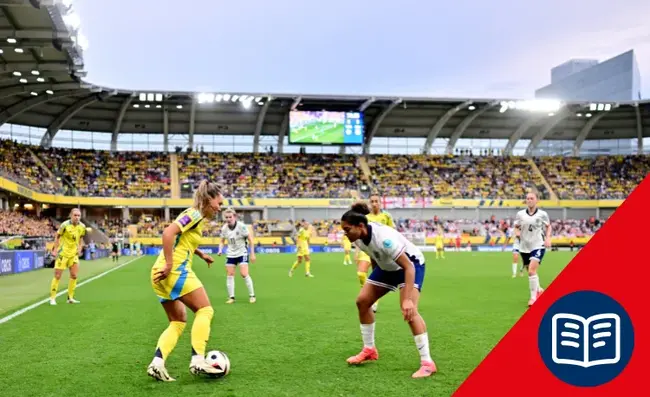You are viewing
1 of your 3 free articles
Supporting players with the emotions of tournament football
Dr Amanda Wilding Pinckney, performance psychologist for Southampton FC Women’s first team, offers an overview of everything players may experience at a tournament - and how staff can support them
Tournament football is a rollercoaster of emotional highs, lows and everything in between. It’s not just about the result on the pitch, but the interactions between team-mates and the staff behind the scenes, along with media obligations and managing the physical and mental fatigue on the body and mind.
For those watching, they pin the wall chart up, decide what matches to watch, get the friends round, pour over the results, then move on with their lives. However, while players must also move on, they do so while carrying the result, their own performance analysis and the expectations/opinions of the country on their shoulders.
Against this backdrop, their reality is they are away from home and loved ones, are in constant proximity to staff and team-mates in the form of sharing space in changing rooms, at dinner and in hotel rooms for extended periods of time. For some, this can be an unfamiliar and stressful pressure-pot experience due to the change of routine and constant noise and interactions. For others, it can be the best days of their lives.
One thing is for sure though; every individual’s tournament experience differs due to their unique psychological traits, attributes, and ability to be flexible, adapt and cope.
The player experience: the run-up
From a player’s perspective, tournaments begin long before they board the plane. There are weeks, even months, of training camps where players compete for a spot in the travelling squad. Once on the plane, the competition continues as players strive to get onto the pitch. Not every player can start or be substituted during games.
Playing in early games versus knockout stages presents different motivations and nuances, but decisions regarding the line-ups are made by staff. Players can only control how they decide to turn up; their daily intent and actions to positively influence coaching decisions.
This often means prioritising training over personal events such as birthdays, weddings, and concerts. When players do not make it on the pitch or bench, these choices may feel like sacrifices, potentially leading to negative emotions. Conversely, moments like waiting to walk out from the tunnel, hearing the crowd, and singing of the national anthem can validate such choices.
The player experience: fixtures
Matches are when tournaments come to life. Balancing emotional responses, the ability to manage stress and thrive, not just survive, all shape a player’s overall experience. Hearing your name being called out for the starting line-up but at the same time feeling guilty about your friend being on the bench - but then for a spilt second not caring - can be an emotional rollercoaster of excitement and guilt.
Moreover, for many, participation in a match alone is insufficient; performance quality is also crucial. No player is perfect. Mistakes and errors are an inevitable aspect of performance. How players overcome such events can influence their performance and inclusion in the rest of the tournament.
Focusing on well-practiced processes and tactics allows players to remain present. Focusing on personal desired targets, such as the number of runs into the box, can galvanise players, provide them with clarity and focus on their role and responsibility within the team. Knowing what motivates them and understanding their own triggers can enable them to know when to take risks and be creative, versus when to play it safe, be logical, and perform planned actions.
Some games can be played late into the night and there can be a long process of post-match activities; getting changed, media interviews, eating and travelling back to the hotel. For some, switching off and sleeping can be a real problem, meaning they must find ways to disperse the energy to get to sleep, which can prove very difficult.
The importance of having a sleep routine they trust cannot be underestimated. This can include activities such as meditation, progressive muscular relaxation, listening to music, or breathing exercises.
The player experience: off pitch
Away from the pitch, tournament schedules can be full-on. From carefully considered dining plans to ensuring everyone eats at the optimal time for performance, through to fulfilling media requirements from sponsors, television broadcasters and the team’s own media.
The schedule should ensure players remain physically and mentally ready for on and off-pitch activities by allowing appropriate downtime for rest and recovery. Players must also be optimally rested to allow them to take on board information, from understanding their roles and responsibilities and tactics to opposition analysis. The ability to shift attention is therefore a key skill associated with tournament football.
Effective and efficient schedules decrease and buffer the stress of being in an intense environment. Staff who are often never seen play a massive role in mitigating potential stressors, making decisions and keeping the team’s schedule to enable players and coaches to focus on performance outcomes.
Getting the most out of a tournament
Overall, tournaments can be the best and worst of times; individuals need to know and understand their own needs; when they can be around the squad, but also what to do when they need quiet time. They need to be aware of their own emotional responses to stress so they have routines, practices and activities that help them optimise their performance.
The team also needs to understand and be aware of each other’s needs and cues, meaning they know when to engage with others and when they need space, as this reduces frustration. Reading the mood of the team is essential. This, for some, means putting on a mask to hide their true feelings and process at a later time.
Of importance is the groundwork the staff and players put into their preparation before the tournament. If everyone knows their role and responsibilities and can control the controllables in a positive manner, this leaves space to process and respond to the unexpected in a calm, logical and informed way.
Newsletter Sign Up
Newsletter Sign Up
Discover the simple way to become a more effective, more successful soccer coach
In a recent survey 89% of subscribers said Women's Soccer Coaching makes them more confident, 91% said Women's Soccer Coaching makes them a more effective coach and 93% said Women's Soccer Coaching makes them more inspired.
*includes 3 coaching manuals
Get Inspired
All the latest techniques and approaches
Women's Soccer Coaching offers proven and easy to use soccer drills, coaching sessions, practice plans, small-sided games, warm-ups, training tips and advice.
We've been at the cutting edge of soccer coaching since we launched Soccer Coach Weekly in 2007, creating resources for the grassroots youth coach, following best practice from around the world and insights from the professional game.



